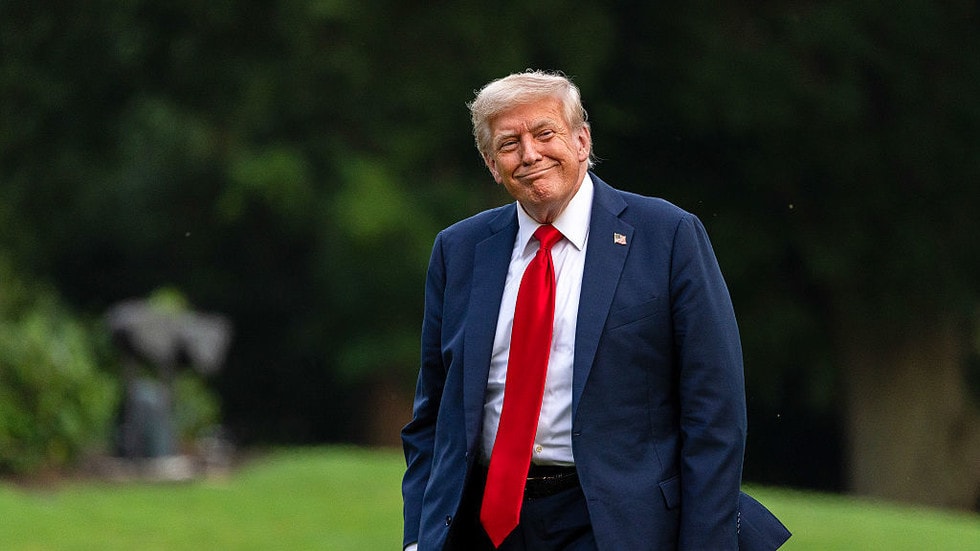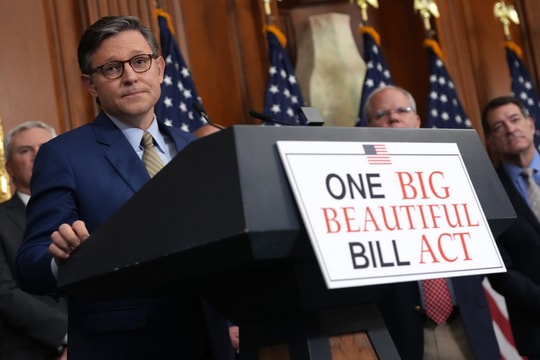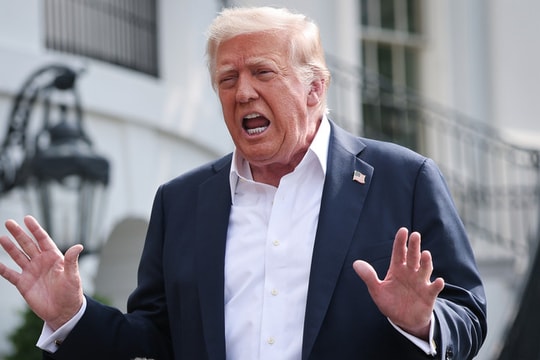Bloomberg: Mr. Trump 'softens tone' with China, US government internally divided
Bloomberg reported on July 16 that US President Donald Trump has softened his confrontational stance towards China in order to increase the chances of a meeting with President Xi Jinping and securing a trade deal with the world’s second-largest economy. However, this softer approach is said to be causing disagreements among his advisers.

Signs of cooling down
A summit between Trump and Xi Jinping now appears possible after what was described as a “positive” meeting between US Secretary of State Marco Rubio and Chinese Foreign Minister Wang Yi in Malaysia last week, according to Bloomberg sources. The Chinese government echoed the sentiment, calling the talks “pragmatic and constructive.”
Mr Trump is now more interested in signing deals with Beijing and celebrating “quick wins” than in addressing the underlying causes of the trade imbalance, sources said, in contrast to his previous stance, which focused on reducing the US trade deficit through tough tariffs.
On July 15, Mr. Trump said the US would fight China "in a very friendly way," showing a preference for negotiation over confrontation.
Backing down on the tariff front
The shift is also reflected in tariff moves. In April, Mr. Trump imposed broad tariffs on more than 90 countries, including China. Beijing retaliated, leading to a tariff confrontation that culminated in tariffs of 145% from the U.S. and 125% from China. Talks in Geneva in May resulted in a temporary suspension of most new tariffs.
Now, US Treasury Secretary Scott Bessent has suggested the US could delay the August 12 deadline, which would see the reimposition of 145% tariffs on Chinese goods. A person familiar with the plan told Bloomberg that the tariff truce could be extended by three months.
Internal divisions over chip policy
However, Mr Trump's softer stance has caused friction among his advisers, some of whom want a tougher line with Beijing.
The divide is most evident in technology policy, with the US allowing chipmaker Nvidia to continue selling its downgraded H20 chips to China, despite previous pledges to keep artificial intelligence (AI) technology out of Beijing’s hands.
Some officials say loosening chip regulations will embolden Chinese tech companies. Others, including Commerce Secretary Howard Lutnick and White House technology chief David Sacks, see restricting chip exports as part of a strategy to win the AI race. “You want to sell enough to the Chinese so that their developers get addicted to the U.S. tech ecosystem,” Lutnick told CNBC.







